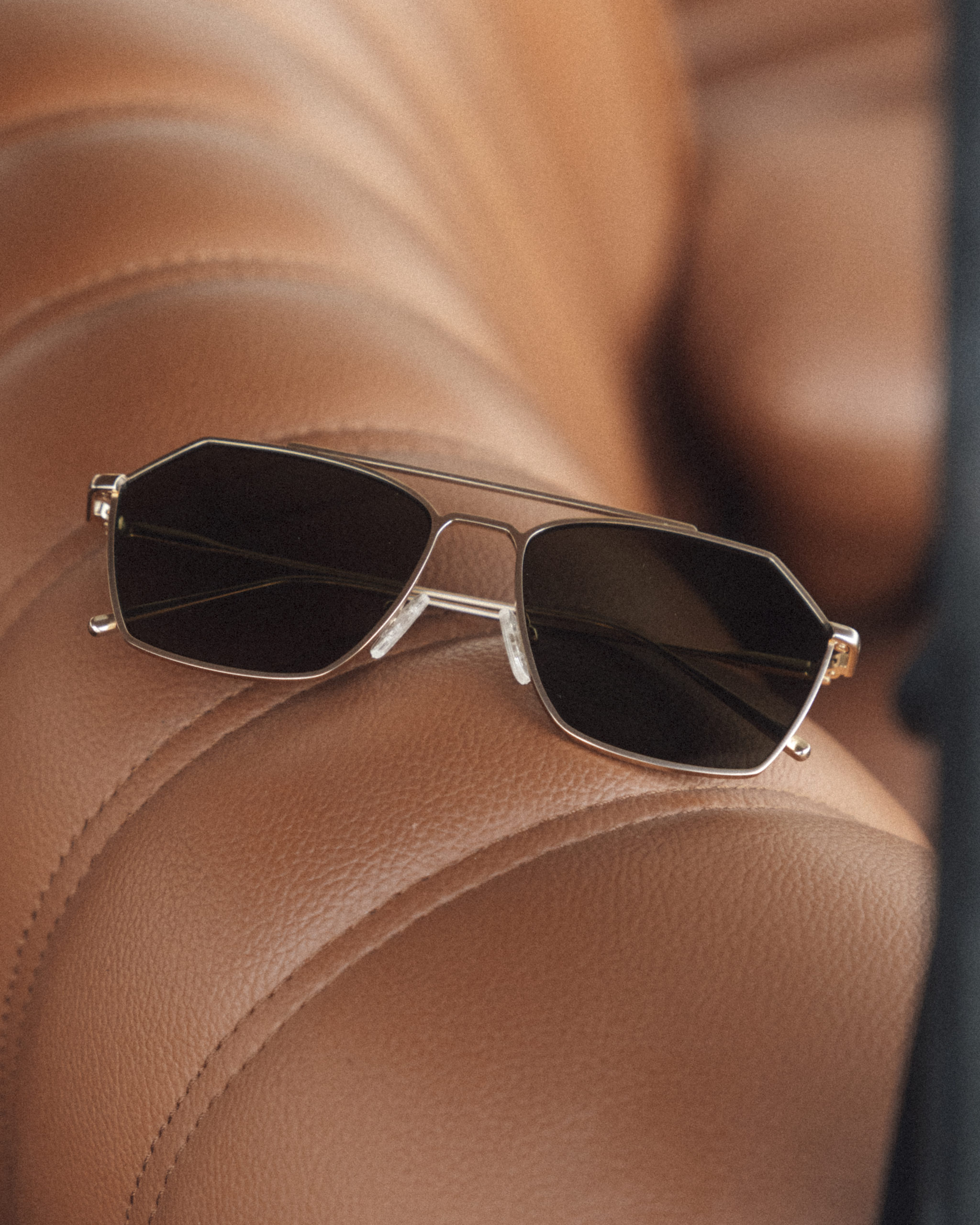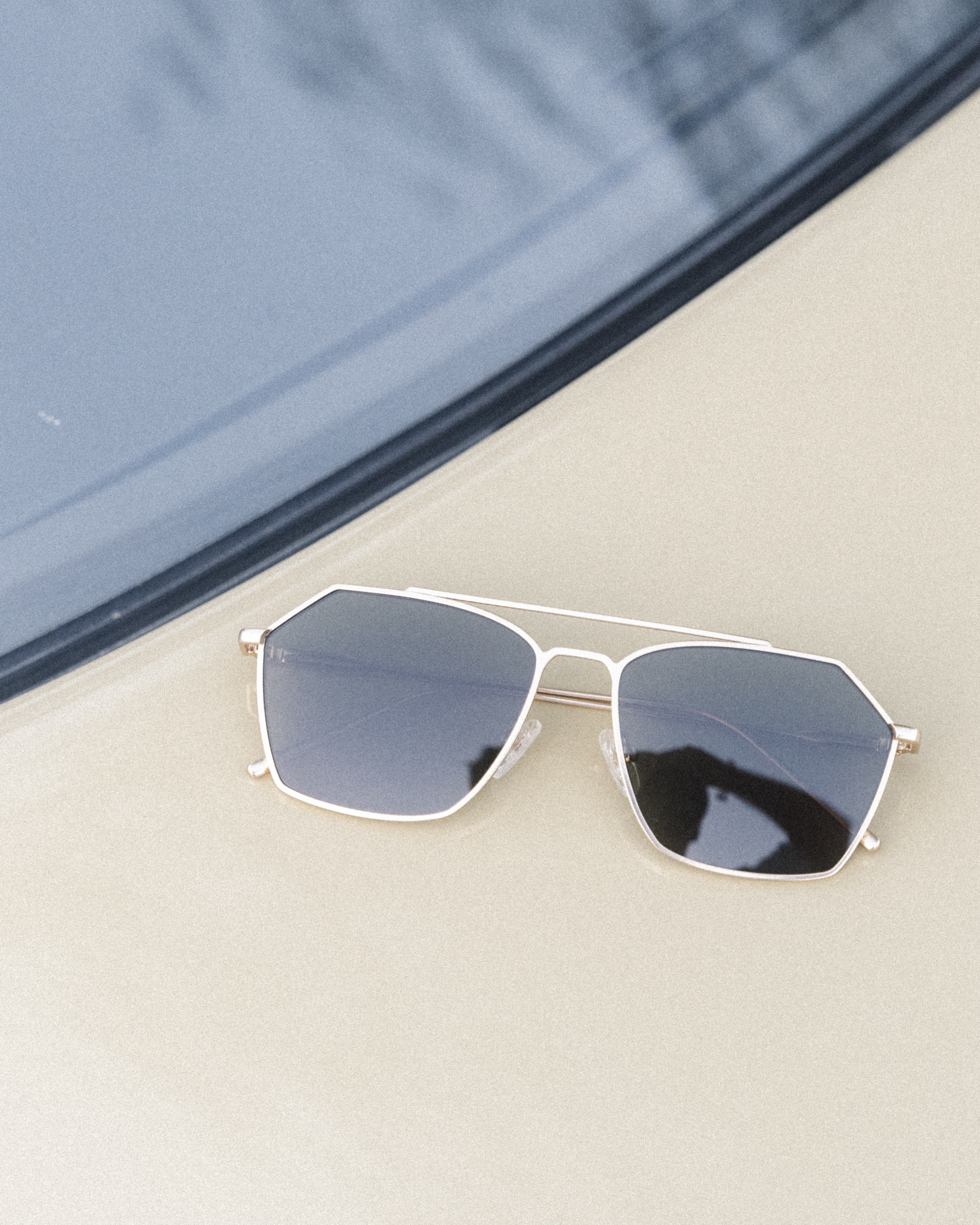Eyes Wide Open: The Risks and Precautions of Sleeping with Contact Lenses
Did you know that one-third of contact wearers have slept off at least once with their lenses on?
No big deal, right?
While it may seem harmless, sleeping with your contacts on can increase your risk of eye infections six to eight times higher.
In this blog, let’s understand why sleeping with your contacts can cause trouble and the types of infections that might attract.
 Woman wearing gray contact lenses (Crescent Gray_Layala6142)
Woman wearing gray contact lenses (Crescent Gray_Layala6142)
The Dangers of Sleeping with Contacts
Sleeping with contacts can be dangerous, as it significantly increases the risk of eye infections, some of which can lead to permanent corneal damage and vision loss.
Acanthamoeba Keratitis
This is another dangerous infection caused by amoeba. It leads to vision loss. It is more likely to affect contact lens wearers with poor hygiene practices. Wearing lenses while swimming or showering are also potential risk factors.
The amoeba can enter the eye through a scrape, which can happen due to an injury or regular contact lens wear. Wearing contacts overnight reduces the cornea’s ability to protect itself from microorganisms.
Bacterial Keratitis
Many people are affected by bacterial keratitis each year. That’s a concern, highlighting the importance of proper contact lens hygiene and care.
Bacterial keratitis is a severe complication that comes from wearing contact lenses. It’s not something to be taken lightly.
Among contact lens wearers, sleeping with your contacts is a big risk factor for escalating this condition.
If you want to treat bacterial keratitis, antibiotic eye drops are the best solution. Depending on the severity of the infection, the number of times you get to use these drops can vary from around four times a day to even every half hour. It includes nighttime as well.
Fungal Keratitis
Fungal Keratitis is caused by a fungal infection, potentially leading to vision loss if left untreated. It is more common in tropical areas but can happen anywhere. Contact lens wear is a big risk factor for this type of infection, as is experiencing an eye injury involving plants, like sticks or thorns.
Also Read: How to Choose Eyeglass Lenses
 Woman wearing Hazel contact lenses (Layala_Sweet Hazel1213)
Woman wearing Hazel contact lenses (Layala_Sweet Hazel1213)
Why it’s Unsafe to Sleep in Contacts?
Your eyes need oxygen to stay healthy, and when your eyes are open, oxygen can pass through the lens, nourishing your cornea.
But when you sleep with your contacts in, there’s limited air exchange, leading to oxygen deprivation and the buildup of toxins. Experts warn that snoozing with your contacts can lead to serious corneal infections, putting the transparent protective layer of your eye at risk.
The chances of getting a corneal infection due to the risks of sleeping with contacts, specifically microbial keratitis, soar to over five times higher when you wear your contacts overnight. This applies to all soft, hard, decorative, or prescription lenses. Unfortunately, many people, both teenagers and adults, are guilty of this habit.
Even the occasional or accidental sleep with contacts can raise your infection risk. Surprisingly, even lenses approved for overnight or extended wear should not be slept in, as researchers advise against it.
Also Read: How to Read Eye Prescription
 Two boxes of TOTAL contact lenses (EYE00435-2)
Two boxes of TOTAL contact lenses (EYE00435-2)
Safe Contact Lens Practices
Ensure safe contact lens practices for healthy eyes and crystal-clear vision! Here are some essential tips to follow for your contact lens safety:
Regular eye examinations
Visit an optometrist once or twice a year for a thorough eye examination, whether you wear contact lenses or not. This keeps you informed about your eye health and helps prevent severe conditions. Always consult your eye specialist before changing your contact lens wear and care.
No sharing allowed
Never share your contact lenses with anyone. Not even family or friends. Sharing or swapping lenses can lead to eye infections and corneal ulcers. Share healthy habits, but not your contact lenses.
Take a break from contacts at night
Let your corneas breathe by removing your contact lenses before going to bed. Even if you have specialty lenses for overnight wear, try to avoid sleeping with them on. Your eyes will thank you for the rest.
Wash your hands before handling your contact lenses
Wash your hands thoroughly with soap and water. This simple step prevents the transfer of germs and helps maintain eye health by preventing infections.
Daily cleaning and disinfection
Unless you use disposable lenses daily, clean and disinfect your contact lenses using prescribed lens care solutions. Consult your eye care doctor for the best cleaning solution for your lenses and eyes.
Stay away from water
Keep your contact lenses away from tap, filter, and saliva. These liquids contain impurities and microorganisms that can harm your lenses and cause infections. Never swim or engage in water activities while wearing contacts unless you use daily disposables with protective goggles.
Care for your contact lens
Clean and disinfect your lens case regularly with lens solution, and replace it every two to three months. Don’t leave it lying around; keep it bottom side up to avoid dust accumulation.
Avoid mixing old and new lens solution
Just like with food, don’t replace your existing lens solution with a fresh one. Mixing old and new solutions can compromise its effectiveness in properly cleansing and disinfecting your contact lenses.
Also Read: What is Astigmatism
 Hand holding a box of ACUVUE MOIST contact lenses (Acuvue)
Hand holding a box of ACUVUE MOIST contact lenses (Acuvue)
What if you accidentally fall asleep in them one night?
We all make mistakes, and accidentally sleeping with contacts is one of them. But don’t worry, here’s what you should do:
- Remove them gently: If you wake up and realize you still have your lenses in, remove them as soon as you can. Be gentle and avoid tugging at them, as that might irritate your eyes.
- Lubricate and blink: If the lenses seem stuck, don’t panic. Add a few drops of sterile contact solution into your eyes and blink a few times. The extra lubrication should help dislodge the lenses.
- Give your eyes a break: After removing the lenses, take a day off from wearing them. Let your eyes breathe and recover from the extended wear.
- Pay attention to how you feel: Observe your eyes throughout the day. If you notice any unusual symptoms like redness or discomfort, contact your eye doctor immediately.
Alternatives for Extended Wear
Extended wear contacts are designed for long-term use; they offer unparalleled convenience – wear them throughout the day and keep them on during your peaceful slumber, all under the guidance of your trusted doctor.
It is ideal for those who dread touching their eyes daily and frees you from the repetitive insertion and removal routine that may cause anxiety for some.
These contacts are a game-changer for time-pressed individuals constantly on the go. Requiring minimal maintenance, they seamlessly integrate into your busy schedule without adding to your stress.
 Woman wearing black contact lenses (Dazzle Black_0233)
Woman wearing black contact lenses (Dazzle Black_0233)
Conclusion
Sound sleep helps you start your day with enthusiasm. It’s crucial to avoid the risk of infection by not sleeping with contact lenses. Remember that protecting your eyes is paramount, so wear your contacts only when awake.
Also, always practice proper contact lens hygiene to ensure your vision’s health and clarity. Following these precautions and being mindful of the importance of proper contact lens usage, you can safeguard your eyes and enjoy clear vision for years.
Your eyes deserve the best care. So keep your eyes open to the risks and ensure the well-being of your eyes.
For quality lenses (color lenses as well as corrective lenses), head over to Eyewa. Don’t forget to check out the fantastic offers.




